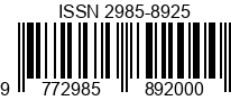Konsep Keadilan: Pendekatan Filsafat hukum
DOI:
https://doi.org/10.54298/tarunalaw.v1i02.160Keywords:
Keadilan, Hukum, FilsafatAbstract
In interpreting justice, there are various versions of answers and they are often considered unsatisfactory. This gives rise to debate and the meaning of justice becomes a relative formulation. The type of research used in research is library research, which is research related to reading, recording and managing materials used in activities related to research and without using field research. The results of the research show that Plato, Aristotle, and Thomas Aquinas stated that justice is proportional equality, while John Rawls stated that the values of justice included in legal philosophy will be answered by legal philosophy itself. Justice in life is an important need for humans so that everyone can balance demanding their rights and carrying out their obligations in an effort to achieve truth. Thus, truth and obligation must be harmonious and balanced in life.
References
Angkasa. 2010. Filsafat Hukum. Purwokerto: Universitas Jenderal Soedirman.
Annisa Wardani, dkk. 2023. “Keadilan Hukum Indonesia: Thomas Aquinas mengenai Keadilan Hukum Dalam Kehidupan Sebagai Bangsa Pluralis.” Kajian Kontempores Hukum dan Masyarakat 4.
Bagus, Lorens. 1989. Kamus Filsafat. Jakarta: Balai Pustaka.
Dwisvimiar, Inge. 2011. “Keadilan Dalam Perspektif Filsafat Ilmu Hukum.” Dinamika Hukum 527.
Muslehuddin, Muhammad. 1985. Philosophy of Islamic Law and the Orientalists. Delhi: Markaz Maktabah Islamiyah.
Nasution, Bahder Johan. 2014. “Kajian Filosofis Tentang Konsep Keadilan Dari Pemikiran Klasik Sampao Pemikiran Modern.” Yustisia 121.
Nurhayati, Ismi. 2023. “Konsep Keadilan Dalam Perspektif Plato.” Nusantara: Jurnal Pendidikan, Seni, Sains, dan Sosial Humaniora 13.
Pandit, I Gede Suranaya. 2016. “Konsep Keadilan Dalam Persepsi Bioetika Administrasi Publik.” Jurnal Administrasi 4.
Popper, Karl R. 2002. Masyarakat Terbuka dan Musuh-Musuhnya. Yogyakarta: Pustaka Pelajar.
Rakhmat, Muhammad. 2015. Pengantar Filsafat Hukum. Bandung: CV Warta Bagja.
Rawls, John. 1973. A Theory of Justice. London: Oxford University.
Serlika Aprita, dkk. 2020. Filsafat Hukum. Depok: PT RajaGrafindo Persada.
Sumaryono, E. 2002. Etika dan Hukum: Relevansi Teori Hukum Kodrat Thomas Aquinas. Yogyakarta: Kanisius.
Downloads
Published
How to Cite
Issue
Section
License
Copyright (c) 2023 Larasati Fitriani Asis

This work is licensed under a Creative Commons Attribution-ShareAlike 4.0 International License.
Authors who publish with this journal agree to the following terms:
- Authors retain copyright and grant the journal right of first publication with the work simultaneously licensed under a Creative Commons Attribution-ShareAlike that allows others to share the work with an acknowledgement of the work's authorship and initial publication in this journal.
- Authors are able to enter into separate, additional contractual arrangements for the non-exclusive distribution of the journal's published version of the work (e.g., post it to an institutional repository or publish it in a book), with an acknowledgement of its initial publication in this journal.
- Authors are permitted and encouraged to post their work online (e.g., in institutional repositories or on their website) prior to and during the submission process, as it can lead to productive exchanges, as well as earlier and greater citation of published work (See The Effect of Open Access).














